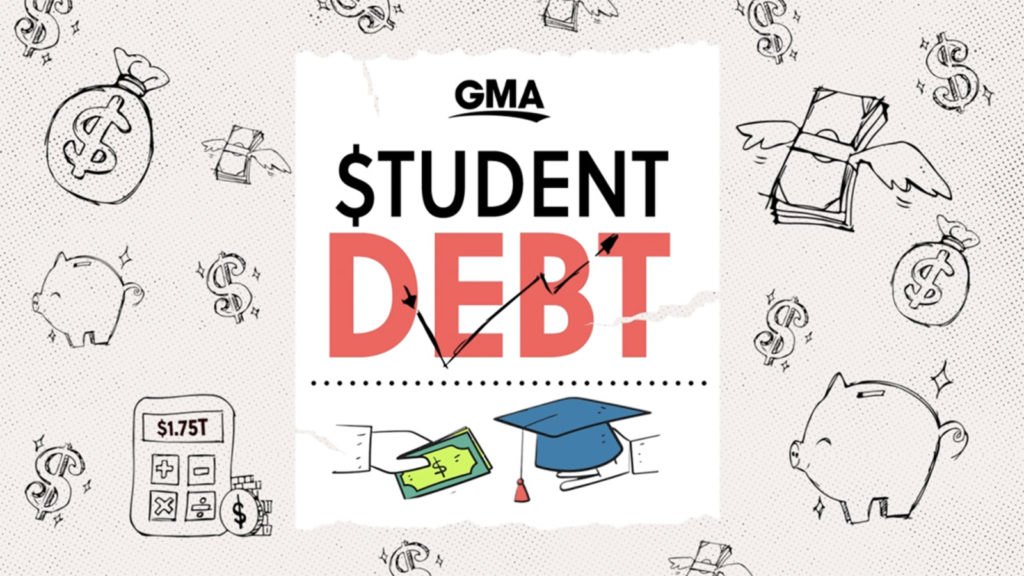
Don Williams: My brother died this week ending his battle with lung cancer. His service will be Saturday in Nashville. Thanks to all who offered prayers and words of support. Please continue to remember his family.
He was a good husband, father, grandfather, son, cousin, uncle, friend and brother. I will miss him.
We visited him in Nashville last week. I took picture albums and we reminisced. I was reminded that in my life, visiting people while they were living has been much more important than attending their funerals.
Among the things they do not teach in school; being the last in your nuclear family, outliving your younger brother and outliving a child are three.

Student Loan Forgiveness. The decision to forgive student loans is a major decision. As you might imagine, I believe there are pluses, minuses and questions surrounding the decision. All are worth consideration.

First the Pluses: The debt relief was an obvious plus for many people. Some could obviously afford to pay their debt, but for many people the debt was a terrible burden and forgiveness is a great plus in their lives.
The freedom from debt should increase spending power for many people. Increased spending should be a plus to our economy.
Being honest, the relief is a probably a plus with young voters for Democrats in the midterm elections.
Minuses:
I am fiscally conservative enough that I believe we need to do a better job of managing the budget. According to the Warton School of Business the estimated cost for the decision will be over $380 billion and possibly as high as $980 billion depending on details.
https://budgetmodel.wharton.upenn.edu/issues/2022/8/23/forgiving-student-loans
That is a lot of money with no plan for payment. I find that to be a minus.
When people borrow money and we forgive the loan, we are rewarding people for not meeting the consequences for their decisions. In my opinion that is a minus. People need to learn to face the consequences for their decisions.

Questions:
Does the president have the authority to make a multibillion-dollar decision on a budget matter without congressional approval? Did he have congressional approval? It has been my understanding that ‘the power of the purse” lies with the House of Representatives. I am certainly neither a constitutional scholar nor a legal expert, but I do wonder about the questions.
Another very interesting question is – Is it fair for some people to have their loans forgiven while others have paid back their loans? Similarly, is it fair for taxpayers who never even went to college to have to pay for the education of others?
Stan Van Gundy challenged Christians about the fairness topic in an interesting manner. He wondered whether the people who brought their own lunch were upset that Jesus fed the 5000? Should the people who had food be unhappy that others were fed, or should they be happy others’ needs were met?
The topic is interesting, and I do not claim to have all the answers, but I know the human tendency is for people to quickly see unfairness toward themselves but to ignore or minimize those times when they have been given an advantage. A good example is inheritance.
My Mom and Dad worked hard and successfully managed their money. They earned their assets. They were in a position to leave a substantial inheritance for my brother and me. We did not earn the money. We got a great benefit simply by virtue of our birth. Did we have an unfair advantage? If we did, am I in a position to complain about those who got an unfair advantage in the loan forgiveness when I paid for my education, and we paid for the education of our children? Seems a lot like ignoring the plank in my eye and seeing the sawdust in my brother’s eye (Mathew 7: 3). If you are a Christian, Mathew 20:1-16 also addresses the issue of fairness and is a challenge to those who complain about unfairness.
Another question is why is there so much concern for the forgiveness of student loans when there are many larger beneficial tax benefits to others?
The final question is — should we do something about the cost of higher education? Public education is free to students (not taxpayers) through grade 12. Should we find ways to expand that to grade 16?
As always, if you believe I am wrong, please correct me. If you have comments or additional pluses, minuses or questions, please let me know.
GOOD NEWS
Hairstylist Sends 30 Kids Back To School With A Free Hair Cut And School Supplies (sunnyskyz.com)
Man Becomes Principal At Elementary School Where He Worked As A Janitor (sunnyskyz.com)
Spinal Muscular Atrophy (SMA): New Treatments Offer Hope (today.com)
I am off to Nashville.
Peace,
Jerry
0 Comments